
- Our studies
- Our research
- Publications and resources
- Data access and training
- About
- News
- Events
- Get in touch
- Join our mailing list

Our briefings and impact library includes summaries of our research findings as well as reports highlighting the impact of our cohort studies.
This briefing note shows the overall prevalence of shoplifting and neighbourhood crime at age 17 and its co-occurrence with other types of offences. Various prior factors are examined in terms of their association with engaging in these crime types, including family socioeconomics and environment, mental health, and previous experiences of offending.
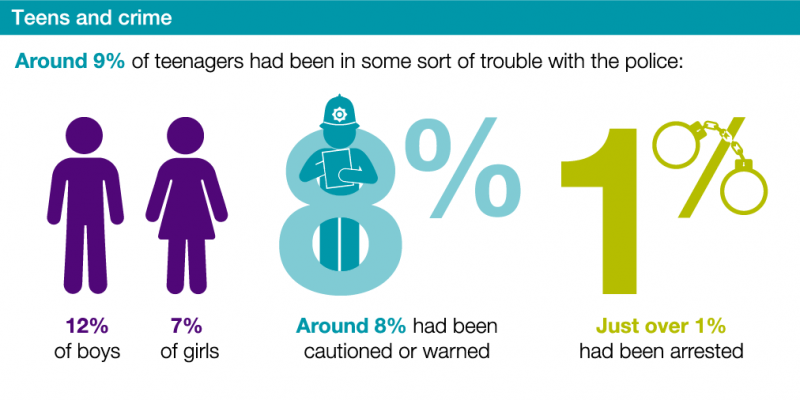
This infographic highlights the percentage of teenagers who reported having been in some sort of trouble with the police.
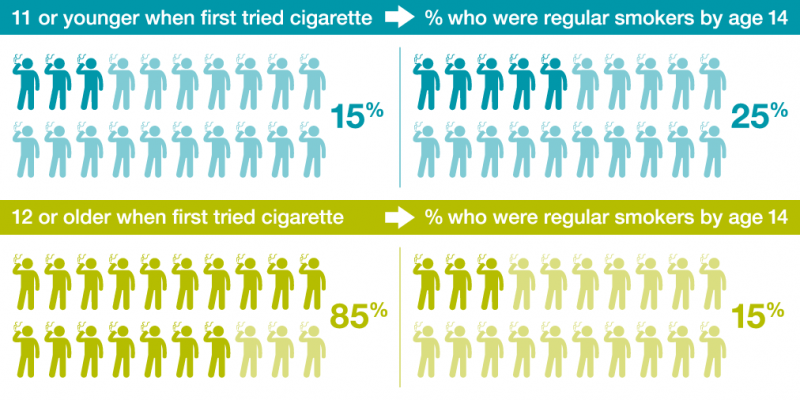
This infographic demonstrates how the age at which teenagers first try a cigarette can affect their likelihood of being a regular smoker by age 14.
This briefing paper looks at the university expectations and occupational aspirations using data from the Age 14 sweep of the Millennium Cohort Study.
This briefing paper examines the weight status of today’s generation of adolescents taking part in the Millennium Cohort Study.
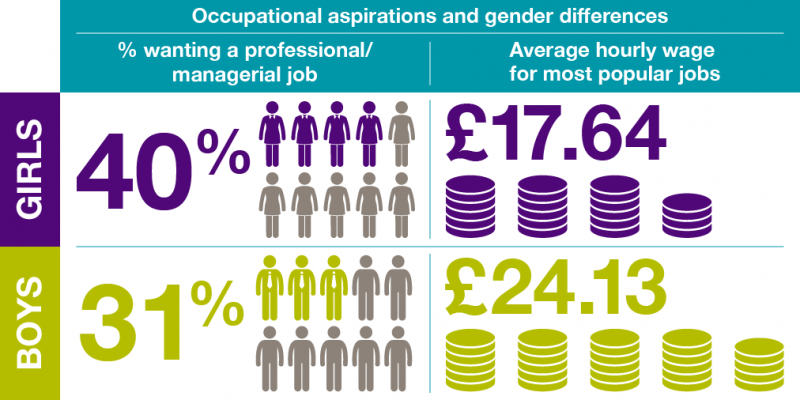
This infographic highlights the different occupational aspirations of teenage boys and girls. It uses data from the Age 14 sweep of the Millennium Cohort Study.
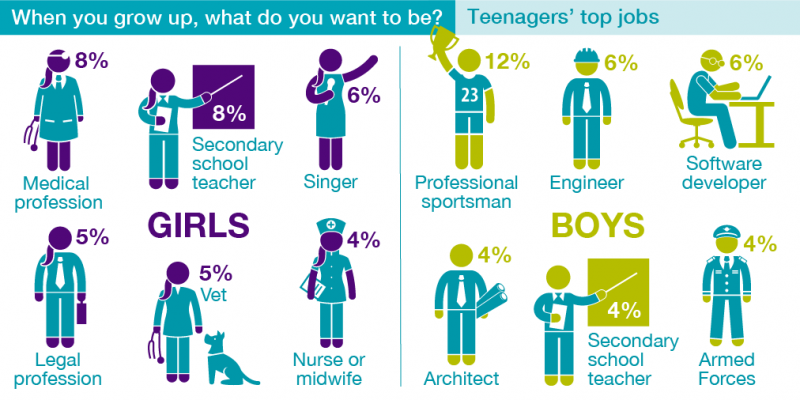
This infographic highlights the gender differences in teenagers’ dream jobs.
This infographic looks at the difference between the percentage of women in the workplaces of the most popular jobs for teenage girls and boys.
Language skills are an important prerequisite for wider learning. In this briefing we examine the factors which influence young people’s knowledge of vocabulary.
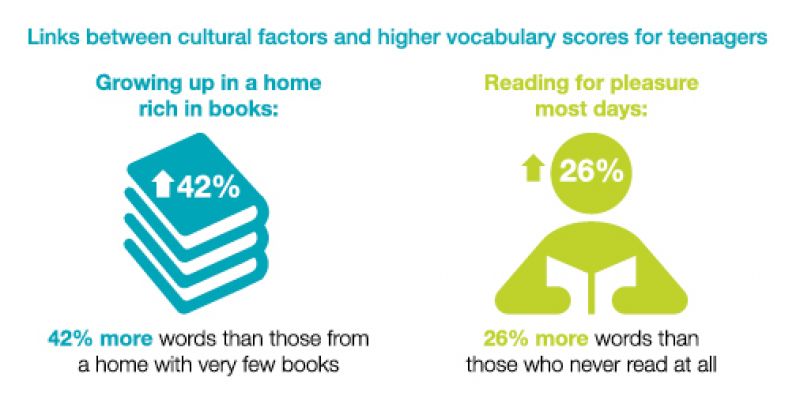
This infographic demonstrates the links between cultural factors and higher vocabulary scores for teenagers. It uses data from the Age 14 sweep of the Millennium Cohort Study.
This briefing paper summarises the prevalence of mental health problems among children taking part in the Millennium Cohort Study.
New CLS research funded by the Joseph Rowntree Foundation shows the generation born in the later 1950s to be divided in their prospects for later life, with a majority expecting to keep on working into their 60s.
New CLS research funded by the Joseph Rowntree Foundation shows the generation born in the later 1950s to be divided in their prospects for later life, with a majority expecting to keep on working into their 60s. This document is the report appendices